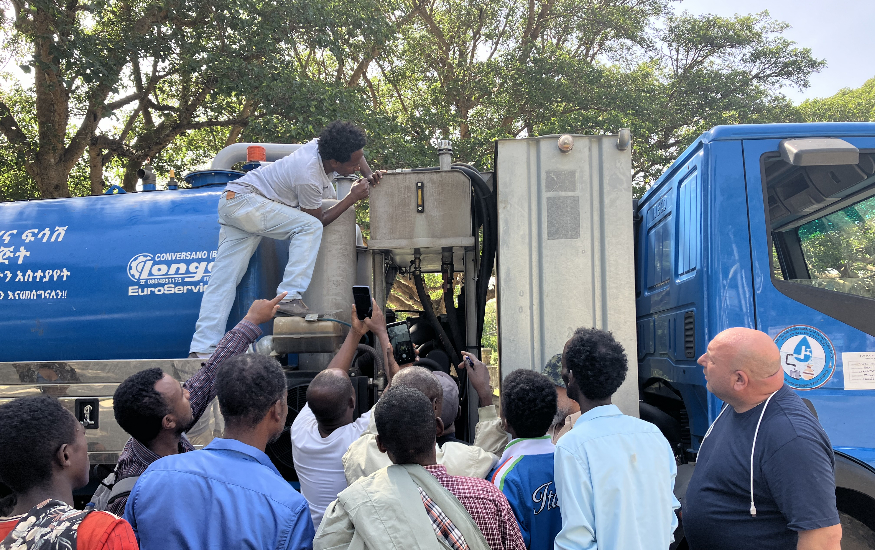In March, the Blue Deal Wastewater team visited Hawassa, Ethiopia, to provide 2 different trainings for our partners - the water utilities of Hawassa, Shashemene and Adama. It was an energetic week in which a lot has been discussed and a lot has been learned. From each utility, around 8 to 10 people were present. They were divided over the trainings according to their profession.

Asset Management and Shit Flow Diagram
The staff working on data and information management dived into 2 topics: Asset Management and Shit Flow Diagram. Richard Oudhuis, Maarten Strasters and Thijs van Osch provided a training focussed on how to work with software related to these topics.
To create a Shit Flow Diagram, using the SuSanA tool, creates insights on wastewater streams. Unsafe discharge can be better seen, and it is a handy tool to see how the wastewater streams flow. This then shows where the main areas of attention and improvement regarding unsafe wastewater discharge are.
For asset management, it was stressed how important it is to know your assets – because when you know what you have, you know what to work on! Using the M-water tool, it becomes easier to build an asset register, and keeping it up to date. On the last day of the training, the trainees went out to bring theory into practice and actually map some of their assets.
The overarching topic of improving data and information management is an important aspect of the Blue Deal Wastewater in Ethiopia, which comes back in multiple aspects. Following up on previous trainings, one trainee elaborated: “It is great to have a training on this topic from time to time, so I can ask questions which pop-up during work.” Having a long-term partnership like the Blue Deal, really shows it benefits.
Operating Vacuum Trucks
For the vacuum truck operators, Volkert van der Keelen and Deler Abdulkarim shared their knowledge on the use of these trucks. There were many questions among the operators and drivers which could be discussed. It once again became clear that the Ethiopian colleagues are operating in a difficult context, in which they try their best to keep the streets clean of wastewater.
The utilities obtained the trucks they were using from a donor. However, they had never been trained properly. They were only instructed by going through the manual together with the trainers in a room. What made this training different is that it was an on-the-job training, where they could ask questions and try out things on the truck. The training focussed on the importance of:
- Properly preparing the truck for operation
- Safety while operating, for yourself, others, and the environment
- Safely discharging the full tanks
- Cleaning and maintenance of the trucks
One of the trainees said: “The training was really interactive and based on our needs. Besides, we not only learned from the trainers but also from each other and the other utilities.”
One noteworthy addition was having Yoseph Cherinet around. He translated the training on truck operation, and assisted in facilitating. This made the training even more effective.
Now, it is up to the utilities to incorporate the knowledge learned during the training!
